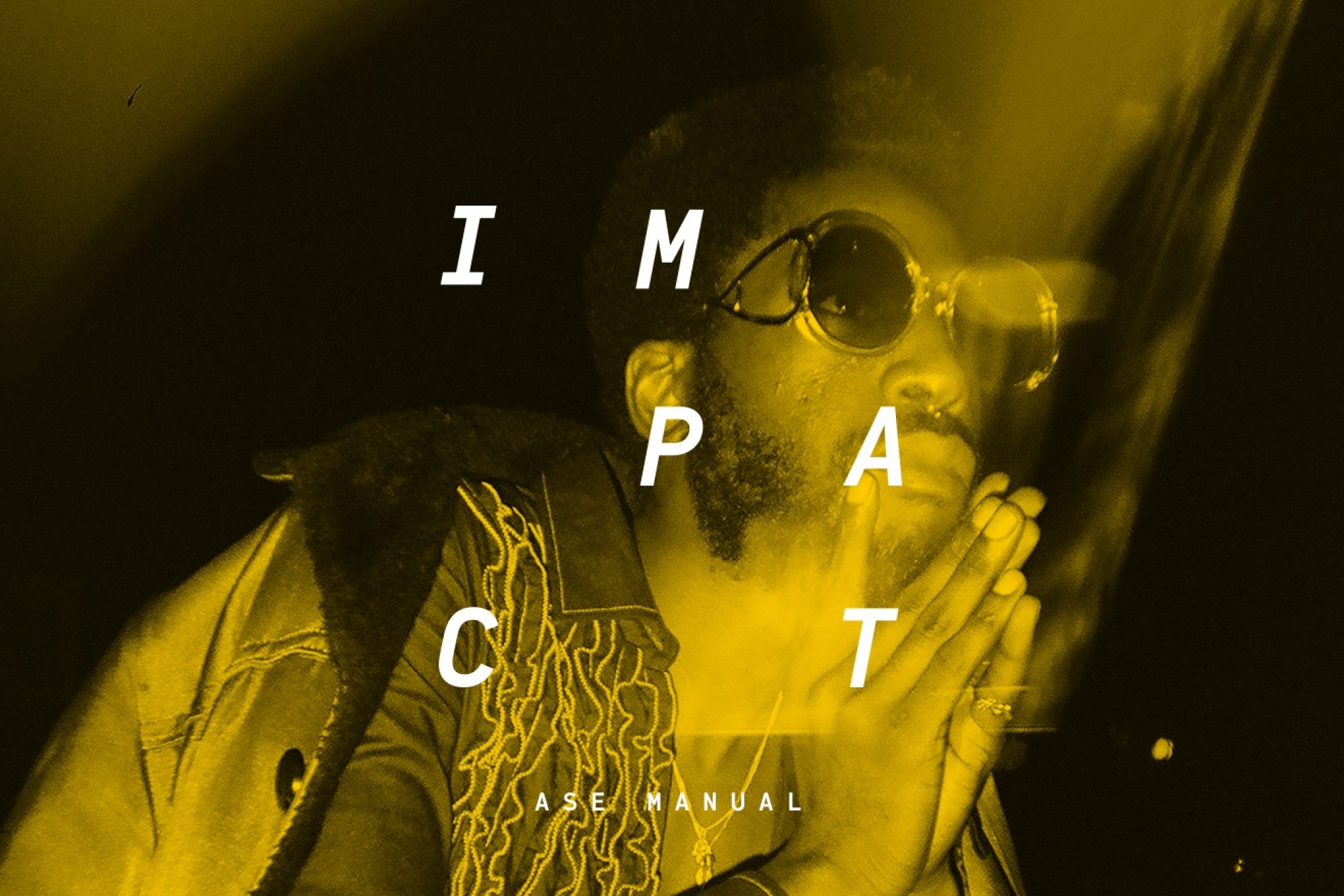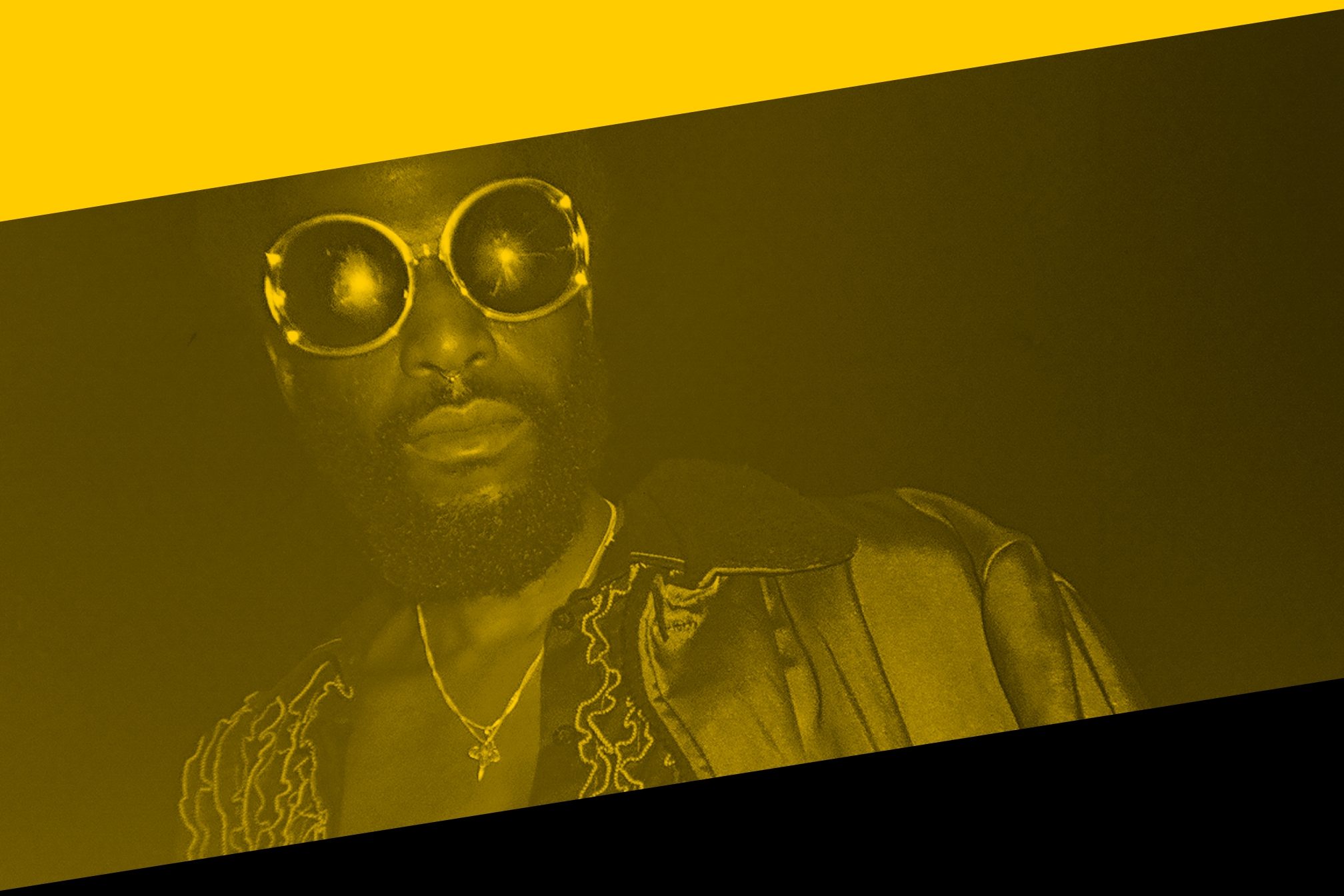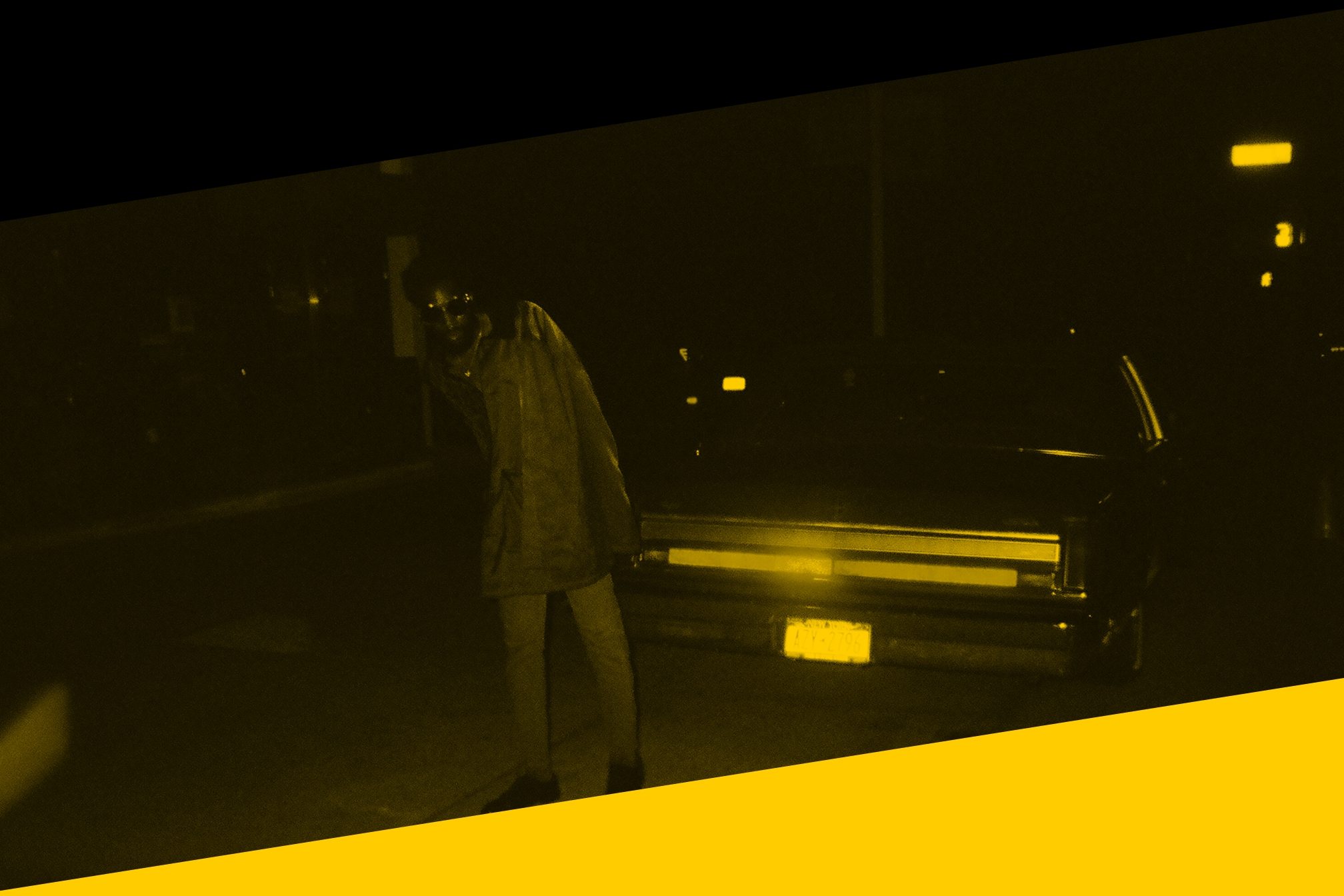 Music
Music
Ase Manual: Finding freedom through music
Tice Cin profiles Ase Manual, the New Jersey artist who keeps releasing crucial club music
Born in Brick City, Ase Manual grew up all music: from the music classes that his school funded, to the block CDs that he’d buy on the walk home. 2016 brought the release of his debut full-length 'GEMS' released on his own imprint Like That Records. A photographic palimpsest of Jersey club, acid and house, 'GEMS' was a cultural reset for the scene, the fluid sound of the record sliding from the hypnotic ‘NJ Transit’ to crowd hyper ‘Visions’ (feat Gianna Lee). Someone who fixes moments in time, Manual tells me how this approach moves into his music: "As soon as I see something I’m like ‘I’m about to tell…’" It’s this attention to detail that transports listeners from track to track.
Ase Manual has just put out 10 releases in the space of a couple of months, including 'Fuji 2 (Italo Disco)', the 'Jazmine' EP that features headboard-shakers like ‘Bend That Shit’, and the shuffle that is 'TESTIFY', produced by UNIIQU3. Prolific isn’t the right phrase to describe Ase Manual’s output, he puts it better, saying, "we’re just antennas for things, vessels that - depending on the tuning - we can allow things to pass through, and that’s how we keep creating".
Ase continues to lantern guide us through his world with 'Black Liquid Electronics', a socially conscious LP from the Yoruba-American artist that calls for a focused home listen just as much as the club scenes destined for it. Bringing in collaborations from Cool Flip, Marvelito, Rouge, INVT and Honcho Brando with tracks like ‘Don’t Hurt Nobody’, Manual makes sure to tap the most dynamic features. His songwriting is tight, words poignant and thrumming with power in tracks like ‘Lucy In The Sky Wid Diamonds’. You can hear that Ase knows his way around a score, his sound design particularly shining on instant classic ‘Lawdaa Mercy’. An elegant project, 'Black Liquid Electronics' explores the different ways in which kindness is present and lacking in society. He offers hope through highway drives and dancefloor scenes.
I spoke with Ase shortly before he went grocery shopping a fortnight ago. Check out his Impact mix and read the Q+A below.

Over the years the texture of your sound feels a bit more driving to me, you’re using less trance-y synth and moving into harder basslines – how do you see your own changes since starting out?
I feel very aggressive right now, my energy and how I carry myself. In response to the way things are, I feel like when I walk down the street I’ve got to be a little aggressive because I don’t know what could happen. I like to be ready when I need to be, I don’t like to get ready. I’ve been after freedom from the very beginning and I’m becoming louder about that expression toward freedom.
In the early times in my life, my music was the place where I got to be gentle, at that time I was more of an aggressive person but gentler in my music but now it’s the other way around. Now I’m understanding that and playing with it, as opposed to it being uncontrollable and that’s what translates now in my music. Can’t nobody say something to me in the street and I’ll automatically get upset anymore, as opposed to when I was younger and I’d turn around – "What’s up? What’s going on?". It’s graduating.
The samples are stunning in 'Black Liquid Electronics', and your voice too. You’re drawing from so many different places. I’m struck by how you use your voice so often in particular. It feels very diaristic, listening to your music before speaking to you in person feels a strange bouncing between you and your music, how much do you see yourself in who you voice?
I think all of those different sounds are me. People underestimate that because I don’t really talk very much and I’m a shy person opening up. I have lived multiple lives. What people live in one life, I’ve lived in like four years. This year I was on tour and the pandemic happened, I played one show and returned to a job as an essential worker immediately. I had to remind myself I’d be okay and I didn’t have to do that. I’m a person, that’s why I’ve been gifted with all of these different perspectives. It may sound like a character, there’s no way it is, I really do be on that. Sometimes there’s a touch of over embellishment but it’s still me in the music, I’ve got shit that I want to say and I want to get your attention. I might say things that are a little shocking but it’s because I want you to inch in a little closer and listen.
I’m very artistically inspired by that space, where we withdraw a little so that people can come forward. I feel like this is something you do very well, there’s a lot of breath in your music, it’s highly syncopated.
I pay attention to that. I’m really into that. I love that.
You’re engineering for many of your releases, like with Fuji Club Music – how have you found your process for engineering your own music?
I’ve always wanted to do it. Quincy Jones is a person who I’ve always looked to in music, self-engineering always. Even when I was working with engineers, I’d watch them engineer a song. I can work from their experience. I only work with people who are African in that way, not necessarily in skin but in that sharing of knowledge. People who don’t attempt to guard what they know.
You’ve always left a lot of space in your releases for collaborations. People like HONCHO BRANDO, Gutta, UNIIQU3 and INVT. How do you feel about those collaborations and the energy they bring to your sound?
I want to work with the best artists in the world. That’s what people want. But people don’t know how to do that because they didn’t teach us how to think right. We all say the same shit: we want peace, love and harmony… We all say the same things, but we don’t know how to get it so we don’t know how to act. I love collaborating. Often these people become friends or they have been friends from a long time ago. I got to collaborate on 'Black Liquid...' with one of my homies that I’ve known for probably fifteen years, Cool Flip. Then there’s HONCHO [BRANDO], a friend that I made through another friend like five years ago, and we’ve only just started to make music together. Then there’s my partner at Like That Records, Marvelito, he’s a DJ who’s recently started making music, now we get to work on songs together. All of that is great, to be able to be a part of that. You can have everything and never get that.That’s why I want to work with the best artists, let’s do that.
The best people come together, it’s inevitable. I’d love to work with Azealia Banks, she a goddess when it comes to creating – it’s like she walks in the studio and says, “what the fuck do I feel like serving today?" Real range, keeping runway but still forever gutta. Really one of the greats and I know together we would come out with something fun.
When I think of people I want to work with in London, I would say FKA Twigs. I was obsessed with her earlier EPs; in the winters I would get in the car and listen to that. We often expect vulnerability in other people when we don’t really face that vulnerability in ourselves, some of us might have a level of it and allow in into our lives but for the masses you’ve got to get it to them and spoon-feed in certain types of ways. She’s been doing that at the highest levels.

How would you see your own work in relation to Jersey club?
I’m from such a place where geographically, there’s no avoiding music. I got to Nigeria for four years. Both my parents and whole upbringing is Nigerian but I’m from north New Jersey, I got to walk out onto my street and buy a DJ Tim Dolla CD. I didn’t have to go to the record store, I had merchants selling all their CDs on the block and I could just go to the DJs from my area making crazy music at the time and buy that on my way back home from school. Then growing up and getting to DJ with some of the best DJs in my area that do Top 40 or radio stuff like Hot 97 type stuff. Over to Afrobeats and Fela, I don’t really have to stem too far to find the base because that is just innate. Jazz. Fusion music. Boston, different types of techno music. I don’t have to ship too far.
To put it simpler, it’s like sitting in a pool and at first it was just you and a couple of other people, but now everybody in the world is coming over and stepping in that pool. Like Club Liv in Miami, at first Liv was Lil Wayne’s spot, he had his section, but now he made it so popular that everyone from around the world has to go to Club Liv when they go to Miami. It’s being in a place that has always been popping and now everybody else has recognized it. Really being in that city and DJing with them… I’m not taking things from Jersey club – to me this is something that has been going for ten years – so with 'GEMS' I wanted to bring a new translation to it. I feel like a lot of producers picked up on that and added translations to what they were doing. I’ve been trying to lean into different pockets of music, like house. Newark has a real house culture that people don’t really even know about, your DJ Chill X’s and places like Zanzibar.
It’s an experience thing, in your bones, in your soul, so many people are on that, especially in that area Baltimore, DC, Jersey, Philly… It was there from young. I’ve been partying for a long time.
Could you talk to me a bit more about 'GEMS' and why you’ve put it out on cassette? It’s an absolute classic.
I’m very in the moment, in 2016 people were putting out records and it was straight digital. That’s what we were on. Now that I’m getting older and I’ve made other tapes, I’m looking at doing more things like this. I realise I love holding my music, playing it on a tapeplayer or listening to records. That feeling of getting a record and thinking, "damn, they made this at this particular time and the fact that I’m holding it right now is amazing". The art sitting in the middle, that feeling is way bigger than any person. That’s one of those things you can’t put language on because language is too dirty. It’s indescribable. These ideas I can’t even attempt to describe in the languages that come out of my mouth, like English.
I got to see you DJing at Pxssy Palace in London and it was one of my favourite sets. How are you feeling about not being able to do gigs in this current climate?
It started hitting me last week, I had this feeling of wanting to perform. It made me think about it in mad different ways, similar to considering why I have sex when I’m not married or in a steady relationship, it’s almost this same immature feeling of wanting to perform and getting that same immature reflection of "yeah, you’re good at doing that!". That ego boost. The pandemic helped me to break that down. What is it that I’m after? Why do I feel a need to perform and put shows together? I miss it, I want it but I can’t have it.
One of the nights out of London that I always wanted to go to is your very own bounce gallery. Could you tell me a bit more about your programming and your label Like That Records?
bounce gallery is its own entity and it houses such feeling for so many people. We book the best artists from around the world, off-record artists but then also more well-known ones. For example, we booked Megan Thee Stallion for her first New York show and that was a rave type of event. That moment is something we appreciate more at this time. Now when we get ideas we can’t just go do it anymore so we look back. At Like That Records it’s me, my partner Marvelito and hellotones, we’re the centre of it and we keep it going but we have so many friends and affiliates at Like That Records, you could be in London and be part of it: when you’re with us, you’re with us.
What would be a shift in your artistic pattern that you could see happening?
Money for making cooler shit. It’s a lubricant. There’s laws of spirituality and there’s laws of man. If I’m gonna make cooler shit then I’m gonna need money, there’s nothing wrong about acknowledging that.
Visit Ase Manual's Bandcamp here
Tice Cin is a freelance journalist. Follow her on Twitter


